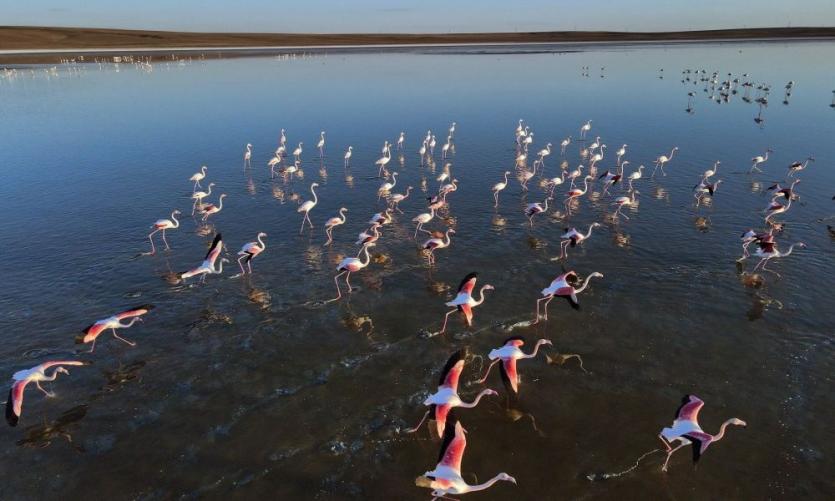A drought-stricken lake bed in Turkey is strewn with thousands of dead baby and adult flamingos, alarming environmentalists shocked by the continuing ravages of climate change, reckless agricultural irrigation and callous government policies. Photo:TWD
By Patryk Krych | The World Daily | JULY 19th 2021
Thousands of baby flamingos have died in Turkey following severe droughts conditions that scientists have stated were a result of a man-made, changing climate. It was the drying of a particular lake, Lake Tuz, that had primarily contributed to their deaths.
Annually, somewhere around ten thousand flamingo chicks are born in Lake Tuz, in the central Turkish province of Konya. The saline lake is renowned to be one of the species’ largest breeding grounds in the entire world. Climate change and agricultural irrigation, however, have led to a high number of deaths in this year’s chicks.
According to Fahri Tunc, a wildlife photographer, water from a canal that would usually feed into the dried-up lake was being redirected in order to support farming practices. It is these farming practices, alongside climate change that are being blamed by both environmentalists and scientists alike, in regards to the incident.
“This is the irrigation canal that comes from Konya. It needs to deliver water to Lake Tuz. As you can see, the water is not coming through. It stopped,” said Tunc, who added that around 5,000 eggs had actually hatched this year, and that nearly all of the hatchlings had died as a result of the lacking water.
“It is a sin we are all committing,” he added.
The deaths had been occurring over the course of the past two weeks, though with recently recorded drone footage, imagery of the graveyard of chicks had been revealed, with plenty of the hatchlings dead and partially buried in mounds of mud.
“I want to stress that there is no direct or indirect connection between this incident and the wells in the area or the agricultural irrigation,” said Bekir Pakdemirli, Turkey’s agriculture minister, who denied the notion that agriculture might be partially to blame for the deaths.
He added that at least 1,000 of the hatchlings were thought to have died, stating that “With less water and increased concentration ratio in the water, we observed deaths of flaminglets that were unable to fly.”
The president of the Turkish NGO the Nature Association, Dicle Tuba Kilic, disagreed with this suggestion and told Reuters that the best way to prevent more flamingo deaths of this kind in the future is to introduce some major changes into the region’s agricultural irrigation methods.






